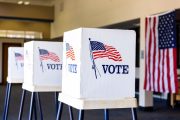
A recent New York Times op-ed is proving to be simply the latest in a long string of such pieces proving that the editors at the supposed “paper of record” simply do not “get it.” Opining under the headline “Preserving Reasonable Gun Limits,” the editors of the New York Times demonstrate a breathtaking disregard or misunderstanding for the nature of constitutionally guaranteed liberties in the United States.
The editorial begins with the assertion:
After serious setbacks to sensible gun control, the top court in Massachusetts on Wednesday made it clear that the Second Amendment does not bar states from protecting children and others against the risk posed by unsecured guns in the home.
The unanimous ruling by the state’s Supreme Judicial Court upheld the constitutionality of a state law that requires guns to be kept in a locked container or equipped with a trigger lock when not under the owner’s control. The law allows for unlocking a weapon kept at home if needed for self-defense.
That makes the law significantly different from the District of Columbia’s ban on unlocked guns in the home, which included no such exception. That law was overturned, wrongly in our view, by the United States Supreme Court’s conservative majority in 2008. The decision asserted that the Constitution creates an individual right to bear arms beyond the context of state militias.
Several important issues are at stake in these initial assertions. First, honesty would best be served by a definition of what is meant by “sensible gun control.” If the very modest revisions in the District of Columbia’s draconian, anti-gun laws are the object of editorial ire — which appears to be the case — that one may only reasonably assume that “sensible gun control” is newspeak at the Times for a complete ban on private gun ownership.
Second, the poorly defined category of “under the owner’s control” has already been noted in other news outlets. As noted in the MetroWest Daily News:
Richard Callaghan gives away a trigger lock with every gun he sells at his Mechanic Street shop in Marlborough, but he wonders why he’s required to use one when he’s in his own home.
"If you are physically there, you are in control. When you’re not home, you’re not in control, and you should have it locked," said the owner of Callaghan Firearms. "If you have the gun for protection, why would you lock it when you’re in the house?"
Bay State gun owners will continue to be required to keep firearms either equipped with a tamper-resistant lock or in a securely locked container after a ruling by Massachusetts’ highest court this week.
The decision frustrated some local firearms sellers and advocates for gun owners, several of whom said the ruling upholds a law that is confusing or deals [with] a matter that ought to be left up to personal responsibility.
The reality of self-defense is that it often necessitates a very quick response by the individual who is being targeted by a criminal. A criminal has the benefit of premeditation; a potential victim may have only a few crucial seconds in which it will be determined whether they are a survivor or a statistic. Fumbling with a trigger lock at 2 a.m. is a great way to cause citizens who might otherwise successfully defend their lives and property to fall victim to preventable violence. Gun-control advocates are very good at cherry-picking heartrending cases of accidental shooting, but the truth of the matter is such tragedies do not eliminate the validity, and constitutionality, of the underlying right and responsibility of self-defense.
Third, and most importantly, the U.S. Supreme Court ruling in 2008 was most certainly not one which “creates an individual right to bear arms beyond the context of state militias.” Even the Constitution does not “create” rights — it enumerates rights that the people already possess. It is never a matter of the federal government doling out rights to the American people as if we were a pitiful band of serfs begging some boon from the lords and ladies who would set themselves up as our betters. We do not ask for our rights; we, as a people, established the court to defend these rights, enumerated in law, against those who would seek to infringe them. The right to self-defense is inherent to humanity, and one may not deprive a citizen of the necessary means for his self-defense without depriving him of that right.
The description of the legislation favored by the editors of the New York Times as “gun control” is a complete misnomer, for guns, of themselves, do nothing. “Gun control” is about controlling people and making criminals of those citizens who are simply trying to exercise their right of self-defense without falling into legal jeopardy on account of the malicious, or simply naive, actions of legislators and others pursuing a legislative agenda deleterious to our liberties.
The New York Times editors further opined:
As the Massachusetts ruling also noted, the Supreme Court has yet to hold that the Second Amendment applies against city and state governments, not just against the federal government and the federal enclave of the District of Columbia. That issue, known as “selective incorporation,” was the subject of a lively oral argument in the nation’s highest court just last week.
That case involves a Chicago law that makes it extremely difficult to own a handgun within Chicago’s city limits. The city’s unusually broad law may not survive Supreme Court muster. But there were heartening comments from the justices indicating that the forthcoming ruling will not foreclose the enactment of strong gun regulations for public safety.
It is consistent with the rest of the editorial that a watering down of a clear defense of Americans’ rights expressed in the Second Amendment would be interpreted as “heartening.” Such blindness to the rights and responsibilities of a free people is consistent with the Times’ “track record” on this issue. While it is sad that a company that makes its money through the exercise of First Amendment liberties so denigrates the rights of the people under the Second Amendment, it is no surprise.
Photo: AP Images



